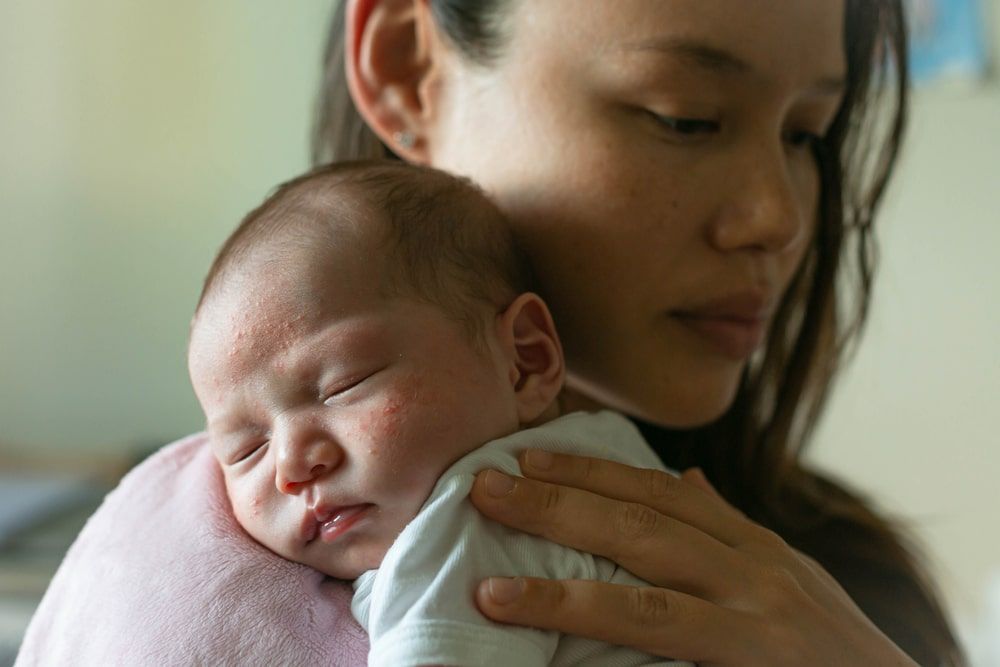Having a baby is an exciting time in a women’s life filled with big changes and a lot of emotions. Feeling tired, anxious, and depressed is common for a new mom. It’s often referred to as the “Baby Blues” and generally goes away in a few weeks. For some new moms, it doesn’t go away and they experience a much more severe mood disorder known as postpartum depression (PPD). PPD occurs in 1 out of every 7 women who give birth and in some cases these new moms don’t even know they have it or are just too ashamed to admit it. PPD can occur days or months after giving birth with symptoms ranging from no appetite, feeling numb of emotions, not being able to connect with your child, diminished concentration, feeling guilty or like you’re a bad mom, feelings of sadness or hopeless just to name a few. While some experience mild symptoms others can experience more extreme and in some severe cases life threatening, these symptoms are very individualized and not one size fits all. It’s important that new moms understand PPD is not caused but what a mom does or does not do. PPD is simply caused by the extreme hormone changes the body experiences after giving birth added to lack of sleep and anxiety new moms often feel. With stars like Brook Shields, Courtney Cox, Gwyneth Paltrow and Hayden Panettiere sharing their stories about their own struggles with PPD it has brought more awareness to postpartum depression. Slowly the stigmas of postpartum depression are being alleviated along with the unrealistic expectation we hold for new moms. PPD can be treated, so the earlier the detection and treatment begins the better. It’s important for new moms even with mild symptoms to talk to their Doctors. Untreated PPD can last for months or longer and in some cases, turn to severe depression. Treatments will vary depending on the individual. The most important thing for new moms struggling with PPD is to know is that you did nothing wrong, you are not alone and it is treatable.
For more information on Postpartum Depression
For help finding a local psychologist visit The American Psychological Association’s Consumer Help Center or Call 1-800-964-2000
National Strategy for Suicide Prevention: Life Line 1-800-273-TALK (1-800-273-8255)
PPD Moms 1-800-PPDMOMS (1-800-773-6667)

